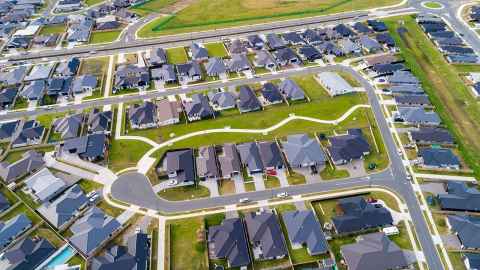NZ’s housing debt dilemma
27 November 2020
Opinion: Policies to manage our stratospheric housing debt will be central to either a managed bumpy descent or an uncontrollable crash. Michael Rehm explains.

Kiwis face a dilemma when it comes to housing. We want our homes to be our sanctuary where we raise our family but we also want housing to make us wealthy and financially secure. Unfortunately, as our prolonged housing crisis has demonstrated, we can’t have our cake and eat it too. New Zealanders must determine our housing priorities and insist that appropriate policies are implemented that support these priorities.
Time is of the essence as our housing dilemma is worsening and is sowing discord between the country’s home owning ‘haves’ and a growing number of long-term renter ‘have-nots’. As house prices approach the upper atmosphere and further decouple from fundamentals like incomes, politicians of all major parties and the banking fraternity have thus far chosen to prop up what amounts to a Ponzi scheme in a vain hope that prices will reach orbit. Like all Ponzis the housing bubble must be fed with new entrants: first home buyers raiding their Kiwisaver and rookie investors seeking a meaningful return on their savings.
Unfortunately, the math does not work when capital gains are no longer on the horizon. Therefore, house prices will eventually recalibrate with families’ ability to afford a home. In other words, house prices will come back to Earth. If we are foolish and continue our ‘she’ll be right’ attitude, we will eventually experience an uncontrollable housing crash. Alternatively, we can engineer a bumpy descent.
Despite our many differences, we have some common aspirations including a desire to raise our family in a safe, healthy and stable home. Although not universal, most would prefer to own their home rather than rent it, and in general most would like to purchase their first home when forming their family, not in middle age.
When house prices are 10 x household incomes, as they currently are in Auckland, the bottom rung of the property ladder is only reachable by catapult. However, when prices are three x incomes, as was the case across New Zealand up until bank deregulation in the 1980s, then a large swath of society can realise the common-held dream of home ownership.
So what changed in the intervening years? In short, a wrecking ball was taken to key policies such as government-funded home loans (State Advances) and Family Benefit capitalisation. These policies supported first home buyers and armies of builders who constructed modest, affordable new homes. Replacement policies emerged such as the accommodation supplement and privatising the social housing stock, which promoted a burgeoning private rental sector. Gradually the family home became more of an investment than a sanctuary.
The Kiwi home has morphed from being ‘where the heart is’ to simply ‘where you hang your hat’. As an investment, it produces your retirement nest egg and catapults your offspring into home ownership. Unfortunately a growing number of families are being left behind in this brave new world. Those ‘fortunate’ enough to have cobbled together an enormous deposit must saddle themselves with a back breaking home loan only to face the rest of their working life and more to pay off an obscenely over-priced home that absorbs considerably more of their take-home pay than generations before them.
We desperately need to establish our housing priorities. Are homes sanctuaries for raising families or are they investments? We need to stop focusing on straw man arguments about regulation stifling housing supply and investors outbidding first home buyers. Although such issues do place unhelpful pressures on housing markets, the elephant in the room continues to be ignored.
New Zealand has a housing debt problem. We are not alone and we share this problem, like climate change, with the rest of the planet, but, unlike climate change, our appetite for housing debt is exceptional in global terms. Housing debt is the catalyst behind our stratospheric house prices and our policies around debt and the creation of money will be central to either a managed descent or the triage that will follow a housing market crash. Like climate change there is no magic bullet that will make our housing problems disappear but the longer we delay implementing a genuine solution the more severe the damage will be to our economy and society.
Dr Michael Rehm is a senior lecturer in the Department of Property in the Business School.
This article reflects the opinion of the author and not necessarily the views of the University of Auckland.
Used with permission from Newsroom NZ’s housing debt dilemma 27 November 2020.
Media queries
Alison Sims | Research Communications Editor
DDI 09 923 4953
Mob 021 249 0089
Email alison.sims@auckland.ac.nz